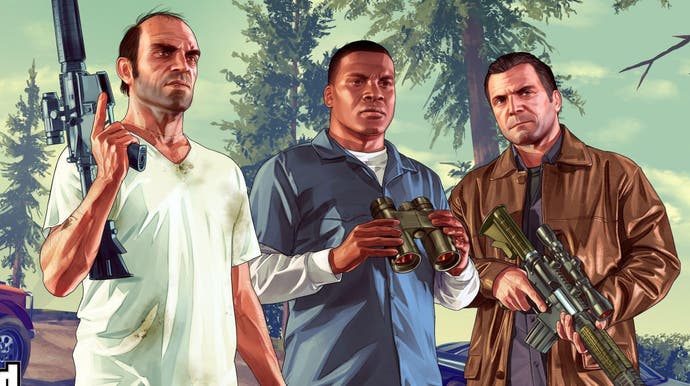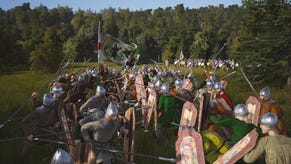A US politician is trying to ban violent video games in Illinois
Following a rise in carjackings.
Not for the first time, a US politician is seeking a ban on violent video games - and on this occasion it's coming from a Democrat in Chicago.
Illinois state representative Marcus C. Evans Jr. is seeking to amend a 2012 Illinois law that bans underage children from accessing violent video games. If passed, HB3531 would prohibit "the sale of all violent video games" in the state, with a penalty of up to $1000 (£709) for those selling violent games.
It would also modify the definition of a violent video game to one that "allows a user or player to control a character within the video game that is encouraged to perpetuate human-on-human violence in which the player kills or otherwise causes serious physical or psychological harm to another human or an animal".
The bill would also expand the definition of "serious physical harm" to include a range of other types of violence, including "motor vehicle theft with a driver or passenger present inside the vehicle when the theft begins". As the Chicago Sun-Times notes, the bill comes in the wake of increased carjackings in Chicago - with officers responding to 218 incidents in January alone. Representative Evans had apparently been contacted by Chicago resident Early Walker who - aside from having an incredible name - also runs a towing company, an anti-violence organisation called I'm Telling Don't Shoot, and started an initiative called Operation Safe Pump (intended to prevent carjackings). Walker apparently reached out to several state legislators after noticing similarities between local carjackings and Grand Theft Auto.
"I feel like this game has become a huge issue in this spectrum," Walker told the Chicago Sun-Times. "When you compare the two, you see harsh similarities as it relates to these carjackings."
Evans, meanwhile, said he hopes the bill will "prohibit the sale of some of these games that promote the activities that we're suffering from in our communities".
So, what are the chances of this bill actually passing? We currently don't know whether any other Illinois representatives or senators support it - the bill is still in the early stages, having only just been referred to the rules committee. As you can see from this flow chart, Illinois has a bicameral legislature, meaning the bill must be approved by both the state's House of Representatives and Senate, while bills can also be vetoed by the state governor (at which point the bill would return to the originating house). So it still has a pretty long way to go.
On top of that, the bill could face challenges via the judicial branch: in 2011 a case in California (Brown v. Entertainment Merchants Association) went all the way up to the Supreme Court, which ruled that video games are protected free speech under the First Amendment. This meant California's 2005 law banning the sale of violent video games to minors without parental consent was deemed unconstitutional. Illinois already has some legislation restricting the sale and rental of violent video games to under-18s, but the amendments proposed by Evans are incredibly broad - and seem more likely to run up against the First Amendment argument used in the California case.
The Entertainment Software Association, the main industry body for video games in the US, has already indicated it opposes the bill in an official statement:
"While our industry understands and shares the concerns about what has been happening in Chicago, there simply is no evidence of a link between interactive entertainment and real-world violence. We believe the solution to this complex problem resides in examining thoroughly the actual factors that drive such behaviors rather than erroneously ascribing blame to video games based solely upon speculation."
And as for whether video games cause real-world violence, according to the American Psychological Association's 2020 resolution, there is still insufficient evidence to prove a causal link between violent video games and violent behaviour.

















